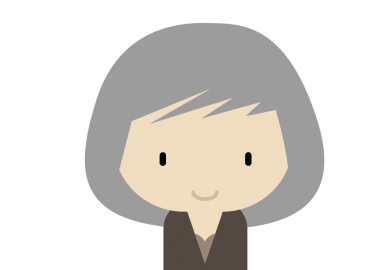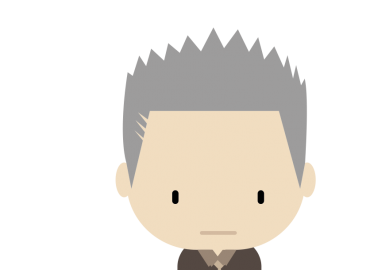Omar Prezole
Expand the elements to view the case or download a printable version with the big orange button!
You are the F1 working on the cardiology ward. You have been asked to review Omar, a 74 year old man who is recovering after a recent operation on his heart. Please take a focussed history of his presenting complaint, including how he has been recovering since his operation, and perform a relevant examination. His regular medications include: • Aspirin 75mg OD • Bisoprolol 5mg OD • Ramipril 10mg OD • Atorvastatin 40mg ON • Gliclazide 160mg OD • Metformin 1g BD • Tamsulosin MR 400micrograms OD • Allopurinol 300mg OD
You are Omar, a 74 year old man who is recovering in hospital following recent surgery to your heart. HPC: You’ve been in hospital 6 days now, and feel like you’re recovering well. You were initially brought in with horrible chest pain. It started while you were walking in the park with your wife and grandson. It felt like someone had put a lead weight on your chest that was crushing you. It radiated up to your neck but nowhere else. You felt very dizzy, short of breath and sweaty. You’ve had angina over the years, but it’s never felt this bad before. You sat down on a bench to catch your breath, but the pain didn’t settle, and your angina spray you always carry with you didn’t help either. At that point you were really worried, and your wife called an ambulance because she said you looked ‘grey’ and as if you were about to faint. You don’t really remember much about what happened after the ambulance came, but you know you were rushed into surgery very quickly. The doctors told you they have put some tubes in somewhere. Since then you’ve been recovering on the cardiology ward. You’ve started getting up and about with the physiotherapists and feel like you’re doing well. You felt a bit sore and shakey at first but that’s settling now. You wrist, where they went in, is sore under the dressing and did ooze a little blood on the first day, but that has now stopped. You developed a chesty cough the day before yesterday and have been a bit feverish. The doctors think you might have picked up a chest infection. They started you on some tablet antibiotics, and you are already feeling better. The only real problem is the food, the vegetarian options are dreadful – so you’ve been getting you wife to bring in some of her cooking instead. ICE: You thought you were having a heart attack, and you were genuinely scared the ambulance wouldn’t reach you in time. You thought you might need an operation, as your brother had to have one last year when he had a heart attack. PMH: Angina, type 2 diabetes (which you’re on tablets for), gout, high blood pressure and an enlarged prostate. FH: You older brother died of a heart attack 5 years ago when he was 71. Your younger brother had a heart attack last year at 61. You’re pretty sure most of your father’s family had heart problems as well. You remember him having heart problems even in his 40s. SH: You smoke 5 cigarettes a day, and have cut down from over a pack a day since you started getting angina. But now you’re going to stop. You don’t drink alcohol. You are a vegetarian. You live with your wife and have lots of family nearby, but have no carers. You usually walk around the shops without stopping, without a stick or anything like that, except when your gout flares up. You own a carpet shop in the town centre with your family, but have essentially retired now and your sons do most of the work. Medications: You’re not really sure what you take each day, as they come in a weekly box from the chemist. You know you have aspirin in there, and a few other tablets for your heart. You also have your spray for when you have angina. You are allergic to a blood pressure tablet beginning with ‘A’, which gave you really swollen ankles. If the doctor offers the name ‘amlodipine’ you will agree that was the name of the tablet you were allergic to.
Students should cover both the history of the cardiac sounding chest pain, and the recovery period post operatively. They should consider acute coronary syndrome in their differential for the chest pain, and hospital acquired pneumonia or atelectasis for the poste operative complications. Students will likely perform a cardiac examination. Positive findings would include a dressing over the right radial artery, normal heart sounds, reduced air entry on the left base with coarse creps, and mild pitting oedema to the feet bilaterally. Questions you may wish to consider asking students include: • What are the indications for PCI? • What are common post-operative complications? • How should this man be managed long term with regards to his cardiovascular risk? • Which members of the MDT should be involved in his care? • What risk factors can you identify for cardiovascular disease in this case?





